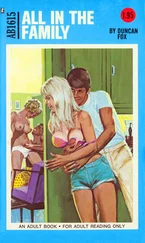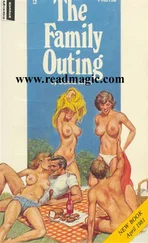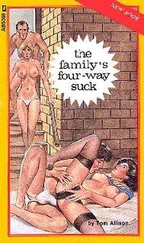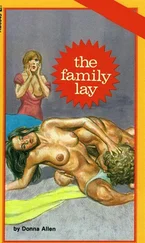“Pipe down, pipsqueak,” I say in a tone of mock outrage. “Aren’t you, like, supposed to be, like, only thirteen?”
“I haven’t said ‘like’ for ages, actually, apart from to express approval,” Ellen protests.
“That’s true, she hasn’t,” says Alex. “And she’s frighteningly spot-on about her drama-queen mother. Tell me this: if you crave tranquility as you claim to, why are you daydreaming about starting fights with strangers?”
“Good point!” Ellen crows.
“Fights? What fights?”
“Don’t feign innocence.”
“Not feigning!” I say indignantly.
Alex rolls his eyes. “Aggressively saying, ‘Nothing’ when people ask you what you do, making them feel uncomfortable by refusing to qualify it at all, or explain . . .”
“Not aggressively. Happily saying it. And there’s nothing about Nothing to explain.”
“Smugly,” Alex says. “Which is a form of aggression. Flaunting your pleasurable idleness in the faces of those with oversensitive work ethics and overstuffed diaries. It’s sadistic.”
“You might have a point,” I concede. “I’ve been particularly looking forward to telling the hardworking, stressed people I meet that I do Nothing. The more relaxed a person looks, the less fun it’ll be to boast to them. And it’s pointless bragging to the likes of you—you love your overstuffed diary. So I’m just going to have to hope I meet lots of people who hate their demanding jobs but can’t escape them. Oh God.” I close my eyes. “It’s sickeningly obvious, isn’t it? It’s me I want to taunt. My former self. That’s who I’m angry with.”
I could have escaped at any time. Could have walked away years earlier, instead of letting work swallow up my whole life.
“I literally cannot believe I have a mother who . . . homilies on in the way you do, Mum,” Ellen grumbles. “None of my friends’ mothers do it. None. They all say normal things, like ‘No TV until you’ve done your homework’ and ‘Would you like some more lasagna?’”
“Yes, well, your mother can’t go ten minutes without having a major, life-changing realization—can you, darling?”
“Fuck off! Oops.” I giggle. If I’ve ever been happier than I am now, I can’t remember the occasion.
“Aha! We’re on the move again.” Alex starts to sing, “End of the traffic, traffic, end of the traffic, traffic, end of the traffic, traffic jam , end of the traffic, traffic, end of the traffic, traffic jam , traffic jam , traffic jam . . .”
Poor, long-dead Georges Bizet. I’m sure this wasn’t the legacy he had in mind.
“Excuse me while I don’t celebrate,” says Ellen. “We’ve still got another, what, seven hours before we get there? I’m boiling. When are we going to get a car with air-conditioning that works?”
“I don’t believe any car air-conditioning works,” I tell her. “It’s like windshield wipers. The other cars want you to think they’ve got it figured out, but they’re all hot and stuffy on days like today, whatever Jeremy Clarkson might want us to think. They all have wipers that squeak like bats being garroted.”
“Aaand . . . we’re at a standstill again,” says Alex, shaking his head. “The golden age of being in transit was short-lived. You’re wrong about the seven hours, though, El. Quite, quite wrong.”
“Yeah, it’s just doubled to fourteen,” Ellen says bitterly.
“Wrong. Mum and I didn’t say anything because we wanted to surprise you, but actually . . . we’re very nearly there.”
I smile at Ellen in the rearview mirror. She’s hiding behind her thick, dark brown hair, trying to hang on to her disgruntled mood and not succumb to laughter. Alex is a rotten practical joker. His ideas are imaginative enough, but he’s scuppered every time by his special prankster voice, instantly recognizable to anyone who has known him longer than a week.
“Yeah right, Dad. We’re still on the North Circular and we’re very nearly in Devon. Of course.” Big, beautiful green eyes and heavy sarcasm: two things I adore about my daughter.
“No, not Devon. There’s been a change of plan. We didn’t want to inconvenience you with a long drive, so . . . we’ve sold Speedwell House and bought that one instead!” Alex points out of the car window to a squat redbrick 1930s-or-thereabouts semi-detached house. I know immediately which one he means. It looks ridiculous. It’s the one anyone would single out, the last in a row of eight. There are three signs attached to its façade, all too big for such a small building.
My skin feels hot and tingly all of a sudden. Like when I had cellulitis on my leg after getting bitten by a mosquito in Corfu, except this time it’s my whole body.
I stare at the house with the signs. Silently, I instruct the traffic not to move so that I can examine it for as long as I need to.
Why do I need to?
Apart from the excessive ornamentation, there is nothing to distinguish this house from any other 1930s redbrick semi. One sign, the largest—in the top right-hand corner, above a bedroom window—says “Panama Row.” That must refer to all the houses huddled bravely together, facing six lanes of roaring traffic immediately outside their windows.
The other two signs—one missing a screw and leaning down on one side and the other visibly grime-streaked—are the name and number of the house. I try to make myself look away, but I can’t. I read both and have opinions about them, positive and negative.
That’s right: number 8. Yes, it’s called . . . No. No, that isn’t its name.
Pressure is building in my eyes, head, chest. Thrumming.
I wait until the worst of it subsides, then look down at my arms. They look ordinary. No goosebumps. Impossible. I can feel them: prickly lumps under my skin.
“Our new house appears to be called ‘German,’ ” says Alex. “Ludicrous name! I mean, er, won’t it be fun to live in a house called ‘German,’ El?”
“No, because we’re not going to be living there. As if Mum’d agree to buy a house on a nearly motorway!”
“You know why she agreed? Because, in no more than ten minutes, we’ll take a left turn, then another left, and we’ll have arrived. No more long journey, just home sweet home. As the old Chinese proverb says, ‘He who buys a beautiful house in the countryside far away might never get there, and may as well buy an ugly house on the North Circular and have done with it.’ ”
“It’s not ugly,” I manage to say, though my throat is so tight, I can hardly speak.
It’s lovely. It’s safe. Stop the car.
I’m not looking at number 8 Panama Row anymore. I tore my eyes away, and now I must make sure they stay away. That won’t be hard. I’m too scared to look again.
“Mum? What’s wrong? You sound weird.”
“You look weird,” says Alex. “Justine? Are you okay? You’re shivering.”
“No,” I whisper. “I’m not.” Not okay. Yes, shivering. Too hot, but shivering. I want to clarify, but my tongue is paralyzed.
“What’s wrong?”
“I . . .”
“Mum, you’re scaring me. What is it?”
“It’s not called ‘German.’ Some of the letters have fallen off.” How do I know this? I’ve never seen 8 Panama Row before in my life. Never heard of it, known about it, been anywhere near it.
“Oh yeah,” says Ellen. “She’s right, Dad. You can see where the other letters were.”
“But I didn’t see it. I . . . I knew the name wasn’t German. It had nothing to do with what I saw.”
“Justine, calm down. Nothing to do with what you saw? That makes no sense.”
“It’s obvious there are letters missing,” says Ellen. “There’s loads of empty sign left at the end of the name. Who would call a house ‘German,’ anyway?”
Читать дальше











